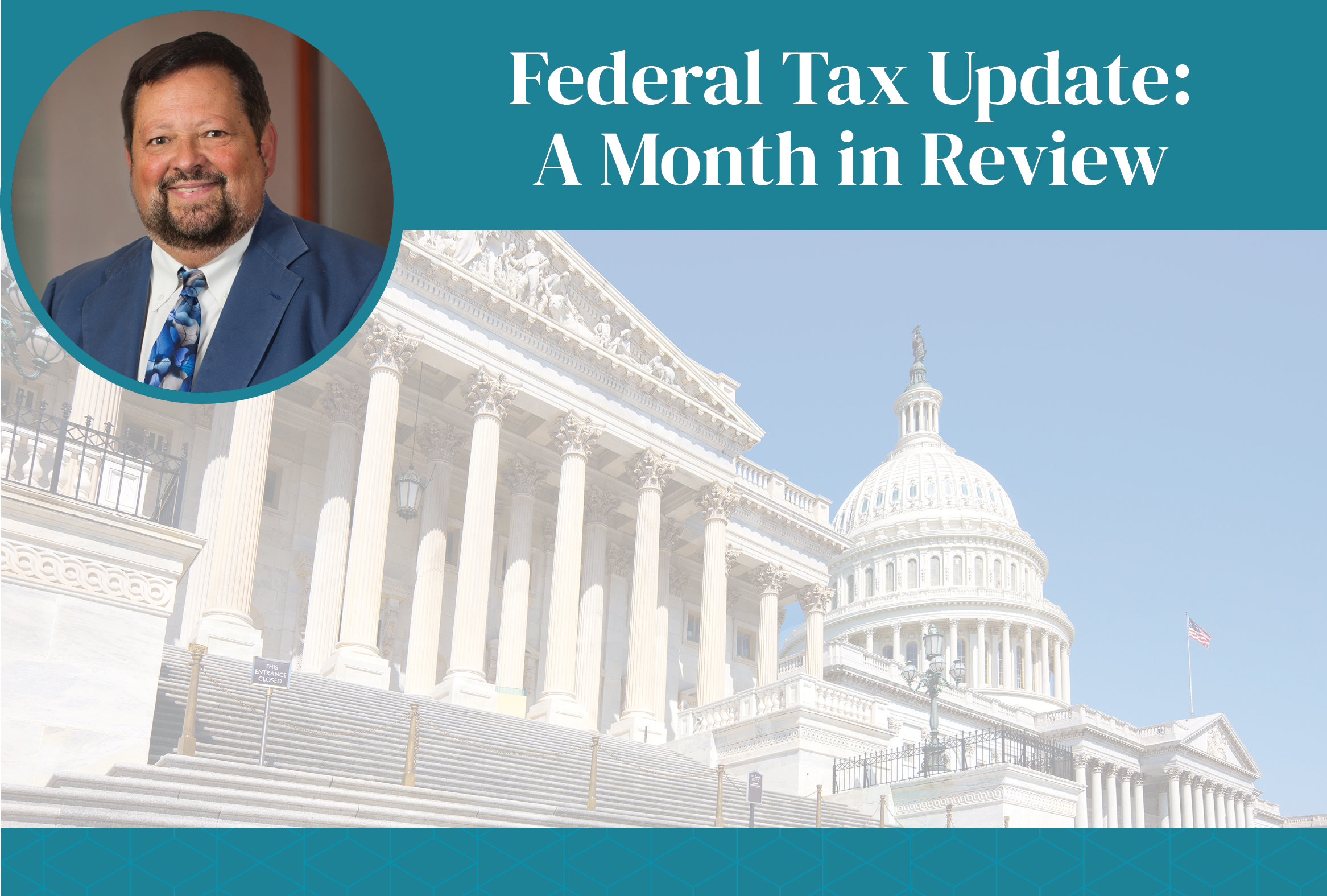March 27th, 2020
Tax Provisions of the CARES Act
Posted in: Featured Tax Law Tagged: Coronavirus, David S. De Jong
Author: David S. De Jong

Individuals
- Creates a credit against 2020 taxes in the form of rebate for U.S. residents with social security numbers and not a dependent of another based on 2019 adjusted gross income (or 2018 if 2019 is unfiled) of $1,200 ($2,400 if married) plus an additional $500 per qualifying child with the maximum rebate phased out by $5 for each $100 that income exceeds $75,000 for single individuals, $112,500 for heads of household and $150,000 for married couples; the credit amount is subsequently computed on the 2020 return and the rebate is subtracted but not below zero.
- Allows a deduction of up to $300 for cash charitable donations in 2020 to nonitemizers and suspends the adjusted gross income cap on cash contributions for 2020.
- Creates an exclusion after date of enactment through year-end on employer repayment of student loans up to $5,250 as part of the existing employee educational assistance program.
Retirement Plans
- Suspends the minimum distribution rule for 2020 (and for 2019 first time required minimum distributions within the grace period ending April 1, 2020) for defined contribution plans and IRAs, ignoring 2020 in determining any five-year period on required withdrawals (any ten-year period, in contrast, is not extended).
- Waives the 10% early withdrawal penalty for distributions in 2020 up to $100,000 from qualified retirement plans or IRAs with one-third taxed in each of three years beginning in 2020 and recontribution available within three years for individuals (including self-employeds) diagnosed or with a spouse or dependent diagnosed with the virus or with an inability to work due to quarantine, furlough, closing or reduced hours.
- Allows cumulative loans from employer plans from date of enactment through September 22, 2020 of up to the lesser of $100,000 or 100% of an individual’s vested balance and delays repayment on existing loans by one year on payments due on or after the date of enactment through December 31, 2020, in each case for individuals (including self-employeds) diagnosed or with a spouse or dependent diagnosed with the virus or with an inability to work due to quarantine, furlough, closing or reduced hours.
Business
- Provides a refundable employment tax credit for 50% of the first $10,000 of wages (including health insurance) paid or incurred from March 13, 2020 for any quarter through year end for employers fully or partially shut down by a governmental authority due to the virus or whose quarterly gross receipts declined by more than 50% from the comparable quarter in 2019 ceasing at the start of a quarter where the 80% level is attained (not available to businesses relieved of certain loan indebtedness pursuant to the Act); for business of more than 100 employees, the credit applies only when employees were not providing services due to the virus.
- Allows a deferral of payment of the employer portion of social security taxes (one-half by self-employeds) after enactment and through 2020, one-half to December 31, 2021 and the balance to December 31, 2022.
- Relaxes the business interest limitation for 2019 and 2020 by allowing a deduction up to the amount of interest income plus 50% of income before depreciation and amortization and by allowing 2019 income numbers to be utilized in 2020 for calculating this limitation.
- Allows net operating losses from 2018, 2019 and 2020 to be carried back five years and to fully offset income.
- Delays the applicability of the ordinary loss limitation for individuals retroactive to 2018 with a new effective date of 2021 (2027 in the case of farmers).
- Allows C corporations in 2020 to deduct cash charitable contributions of up to 25% of tentative taxable income.
- Allows an election until December 31, 2020 by C corporations to take any unused alternative minimum tax credit on a 2018 return; otherwise it is taken in 2019.
- Corrects an error in the 2017 Tax Cuts and Jobs Act by restoring the treatment of leasehold improvements to commercial property by landlords or tenants as 15-year property, allowing immediate writeoff through bonus depreciation.
You can find more on issues affecting businesses and individuals in our COVID-19 Resource Center.




